
Samut Prakan: Gateway to Thailand's Coastal Charm
Samut Prakan, a coastal city in Thailand, is a hidden gem for tourists who want to experience the beauty of the Gulf of Thailand. Located just a short drive from Bangkok, this city offers a mix of cultural landmarks, scenic spots, and modern attractions. One of the most famous attractions in Samut Prakan is the Ancient City (Muang Boran). This open-air museum features scaled-down replicas of famous Thai monuments and buildings, giving visitors a glimpse of Thailand's rich history. Another must-visit is the Erawan Museum, known for its giant three-headed elephant statue and intricate art collections. Nature lovers will appreciate Bang Krachao, often called the 'Green Lung of Bangkok.' This lush area offers cycling paths, floating markets, and serene parks. For those interested in marine life, the Samut Prakan Crocodile Farm and Zoo provides an exciting look at crocodiles and other reptiles. Samut Prakan also has a vibrant local food scene. Don't miss the seafood markets where you can taste freshly caught fish and other delicacies. The city is known for its friendly locals and relaxed pace, making it a perfect destination for a day trip or a weekend getaway.
Local tips in Samut Prakan
- Visit the Ancient City early in the morning to avoid crowds and enjoy a peaceful experience.
- Rent a bicycle to explore Bang Krachao; it's the best way to enjoy the natural surroundings.
- Try the local seafood at Bang Pu Seaside; it's fresh and delicious.
- Don't forget to bring sunscreen and a hat, especially if you plan to explore the outdoor attractions.
- Check the opening hours of the Erawan Museum in advance as they can vary.
Samut Prakan: Gateway to Thailand's Coastal Charm
Samut Prakan, a coastal city in Thailand, is a hidden gem for tourists who want to experience the beauty of the Gulf of Thailand. Located just a short drive from Bangkok, this city offers a mix of cultural landmarks, scenic spots, and modern attractions. One of the most famous attractions in Samut Prakan is the Ancient City (Muang Boran). This open-air museum features scaled-down replicas of famous Thai monuments and buildings, giving visitors a glimpse of Thailand's rich history. Another must-visit is the Erawan Museum, known for its giant three-headed elephant statue and intricate art collections. Nature lovers will appreciate Bang Krachao, often called the 'Green Lung of Bangkok.' This lush area offers cycling paths, floating markets, and serene parks. For those interested in marine life, the Samut Prakan Crocodile Farm and Zoo provides an exciting look at crocodiles and other reptiles. Samut Prakan also has a vibrant local food scene. Don't miss the seafood markets where you can taste freshly caught fish and other delicacies. The city is known for its friendly locals and relaxed pace, making it a perfect destination for a day trip or a weekend getaway.
When is the best time to go to Samut Prakan?
Iconic landmarks you can’t miss
The Ancient City
Discover Thailand's rich heritage at The Ancient City, an open-air museum featuring stunning replicas of iconic landmarks throughout the nation.
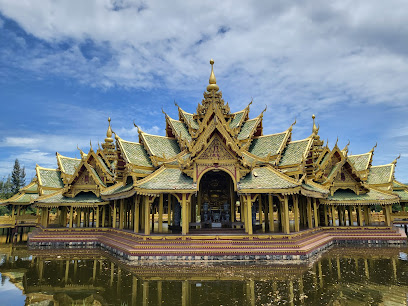
The Erawan Museum
Explore The Erawan Museum in Samut Prakan, where culture, art, and architecture converge in a stunning three-headed elephant landmark.
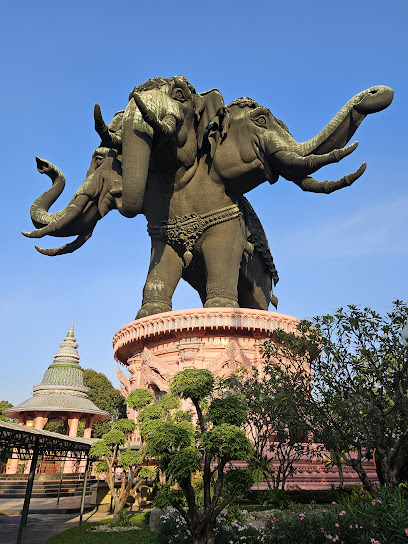
Sri Nakhon Khuean Khan Park and Botanical Garden
Experience the serenity of nature at Sri Nakhon Khuean Khan Park and Botanical Garden, a lush urban oasis perfect for relaxation and exploration.
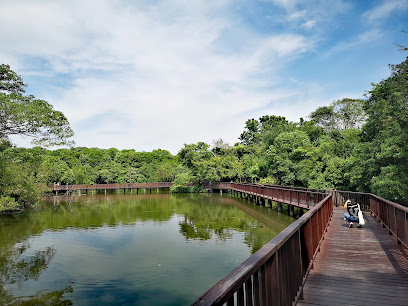
Phra Chulachomklao Fort
Discover the rich history and stunning views at Phra Chulachomklao Fort, a significant military landmark in Samut Prakan, Thailand.
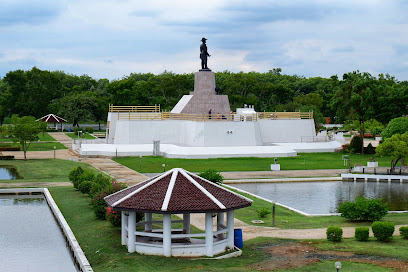
Suk Ta Bridge
Explore the serene beauty of Suk Ta Bridge in Samut Prakan, a picturesque location perfect for nature lovers and photography enthusiasts.
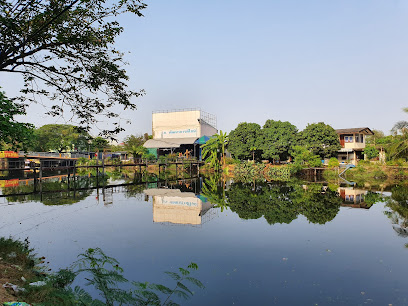
Samut Prakan Learning Park And Tower
Experience breathtaking views and cultural insights at Samut Prakan Learning Park and Tower, a unique blend of nature and education.
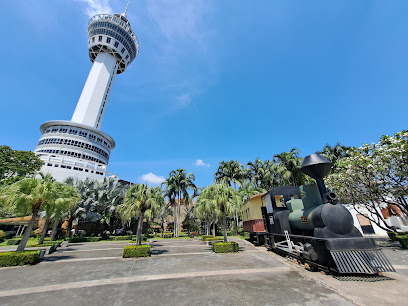
Phra Pradaeng City Pillar Shrine
Explore the Phra Pradaeng City Pillar Shrine, a serene historical landmark showcasing Thailand's rich culture and spirituality in a tranquil setting.
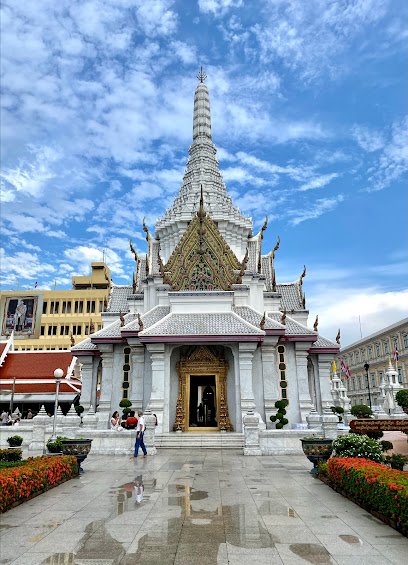
Phi Suea Samut Fort Museum
Explore the historical treasures of Phi Suea Samut Fort Museum in Samut Prakan, a captivating journey through Thailand's military past and cultural heritage.
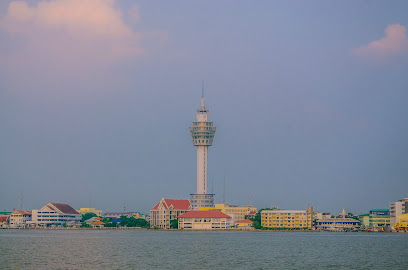
ᐅ Sumeru Mountain (102)
Explore the breathtaking beauty of Sumeru Mountain in Samut Prakan, Thailand, where nature and culture come together for an unforgettable experience.
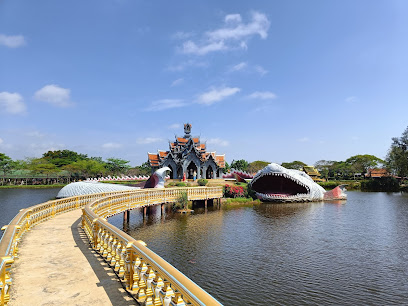
ᐅ The Stupa of Phra Maha That, Nakhon Si Thammarat (007)
Explore the spiritual heart of Thailand at the iconic Stupa of Phra Maha That, a breathtaking monument steeped in history and cultural significance.
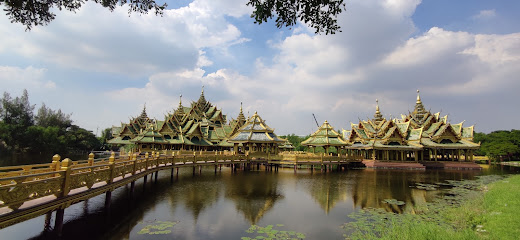
Sanphet Prasat Palace. Muangboran - The Ancient City
Explore the majestic Sanphet Prasat Palace in Muangboran, a stunning representation of Thailand's historical and cultural heritage.
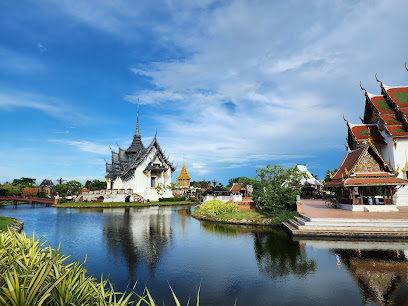
ᐅ The Old Market Town (010)
Explore The Old Market Town in Samut Prakan – a vibrant cultural hub filled with traditional architecture, delicious street food, and local craftsmanship.
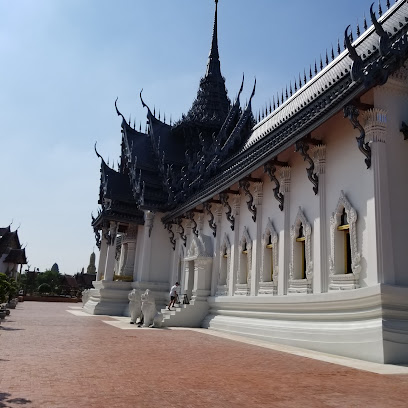
ᐅ The Grand Hall of Wat Maha That, Sukothai (050)
Discover the Grand Hall of Wat Maha That, a captivating historical landmark in Sukothai showcasing Thailand's rich cultural heritage.
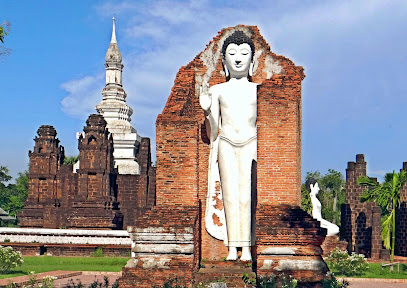
Pavilion of the Enlightened
Experience the rich cultural heritage of Thailand at the Pavilion of the Enlightened, a stunning tourist attraction in Samut Prakan showcasing traditional art and architecture.
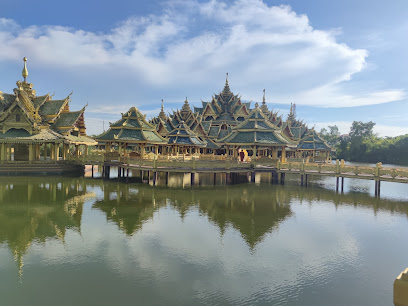
Khlong Phi Lok
Explore Khlong Phi Lok: A serene oasis in Bang Kachao, offering lush landscapes, local culture, and tranquility just outside Bangkok's bustling heart.
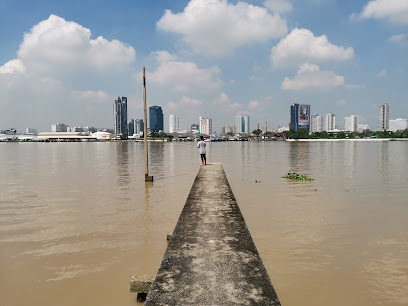
Unmissable attractions to see
The Grand Palace
Explore the Grand Palace in Bangkok, a historical marvel showcasing Thailand's rich cultural heritage and breathtaking architecture.
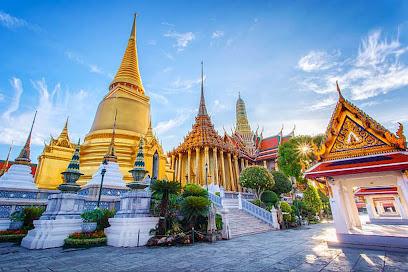
Asiatique The Riverfront
Explore Asiatique The Riverfront, Bangkok's vibrant night market, offering shopping, dining, and entertainment along the scenic Chao Phraya River.
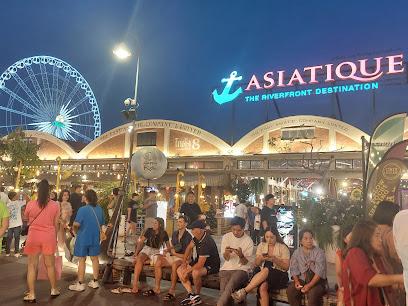
Suvarnabhumi Airport
Discover the vibrant spirit of Thailand at Suvarnabhumi Airport, your gateway to the Land of Smiles with modern facilities and cultural experiences.
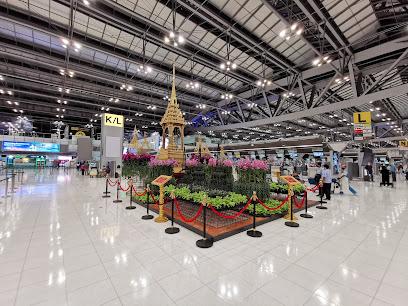
Safari World Bangkok
Explore Safari World Bangkok, an enchanting wildlife park featuring diverse animals, thrilling shows, and unforgettable family experiences in the heart of Thailand.
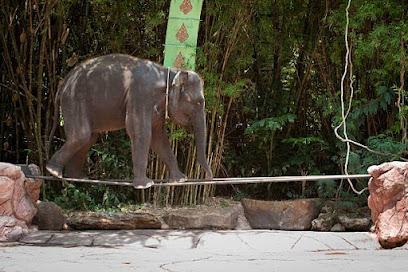
The Temple of the Emerald Buddha
Discover the grandeur of the Temple of the Emerald Buddha, a spiritual oasis and architectural marvel in the heart of Bangkok, Thailand.
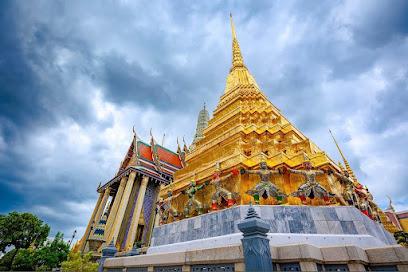
Lumphini Park
Explore the serene beauty of Lumphini Park, a lush urban escape in the heart of Bangkok, perfect for nature lovers and relaxation seekers.
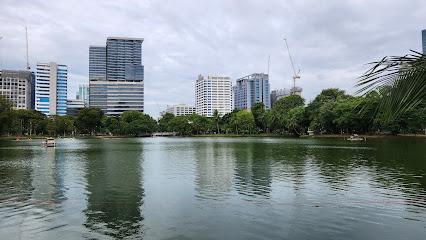
Wat Phra Chetuphon Wimon Mangkhalaram Rajwaramahawihan
Experience the spiritual heart of Bangkok at Wat Phra Chetuphon, home to the magnificent reclining Buddha and centuries of Thai heritage.
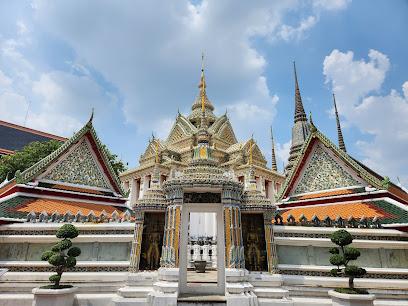
The One Ratchada
Experience the vibrant energy of The One Ratchada, Bangkok's night market offering delicious food, unique shopping, and lively entertainment.
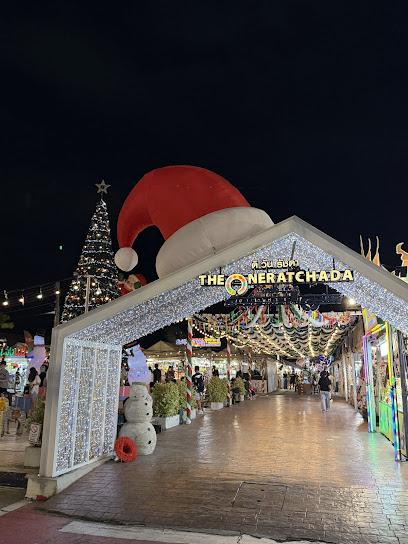
Sanam Luang
Discover Sanam Luang, a serene park in the heart of Bangkok, blending culture, history, and natural beauty into one unforgettable experience.
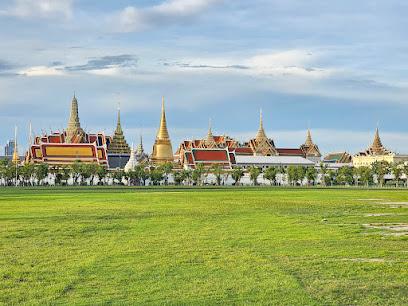
King Power Mahanakhon
Discover breathtaking views, vibrant bars, and unique shopping at King Power Mahanakhon, Bangkok's iconic skyscraper.
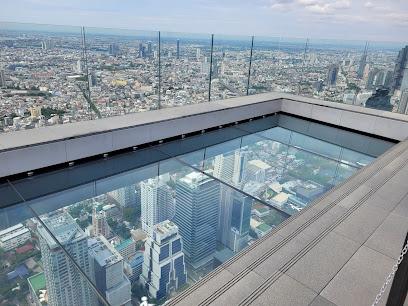
Bangkok Art and Culture Centre
Discover contemporary art and cultural events at the Bangkok Art and Culture Centre, a vibrant hub for creativity in Thailand's capital.
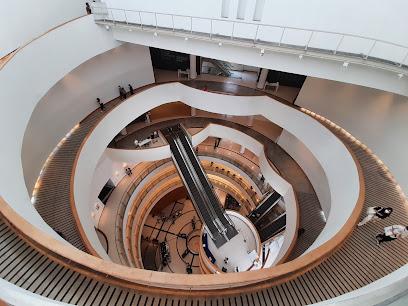
Suan Luang Rama IX
Discover the beauty of Suan Luang Rama IX, Bangkok’s largest park, where tranquility meets vibrant nature and cultural heritage.
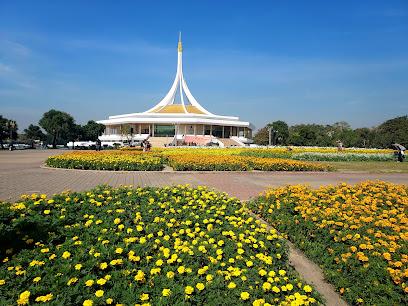
Chinatown Bangkok
Explore the lively streets of Chinatown Bangkok, a cultural mosaic filled with tantalizing street food, vibrant markets, and rich traditions.
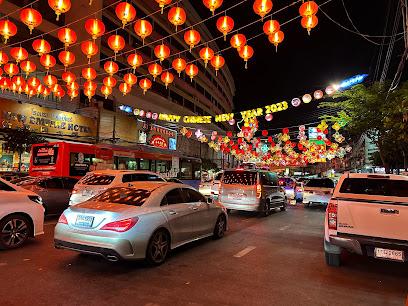
Dream World
Experience Thrills and Magic at Dream World, Thailand's Premier Amusement Park Featuring Rides, Shows, and Family Fun.
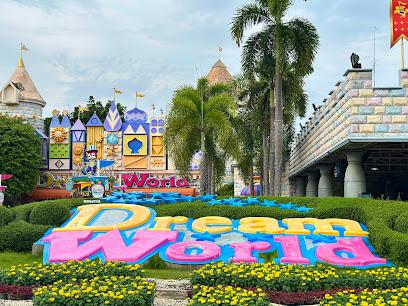
Wat Mangkon Kamalawat (Wat Leng Noei Yi)
Explore the serene beauty and rich cultural heritage of Wat Mangkon Kamalawat, a top Buddhist temple in the heart of Bangkok.
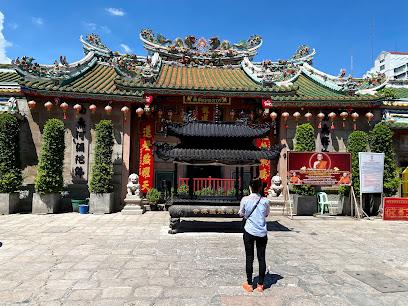
Essential places to dine
Rabiang Thale Restaurant
Experience exquisite seafood dining at Rabiang Thale Restaurant in Samut Prakan – where fresh catches meet stunning ocean views.
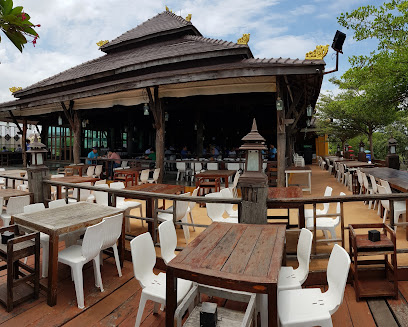
Moken
Discover Moken in Samut Prakan - A Seafood Haven Where Freshness Meets Authentic Thai Flavors!
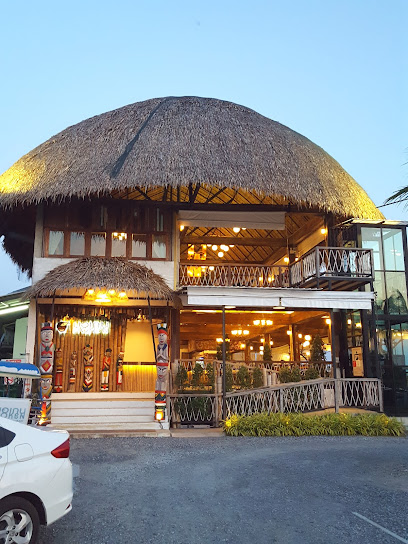
Sailom Bang Pu
Discover the best seafood dining experience at Sailom Bang Pu in Samut Prakan, where authentic Thai flavors meet stunning coastal views.
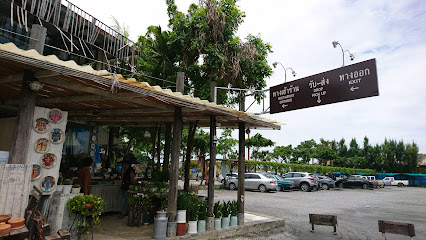
King Kaew Seafood
Experience the ultimate seafood buffet at King Kaew Seafood in Bang Phli – where freshness meets flavor in every bite.
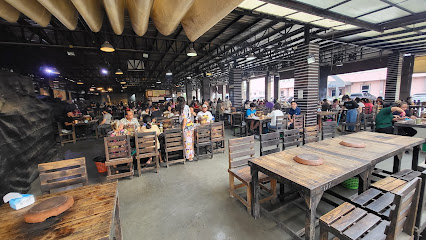
Koh Lanta Restaurant, Suvarnabhumi
Experience authentic Thai cuisine at Koh Lanta Restaurant in Suvarnabhumi—where flavor meets tradition in every dish.
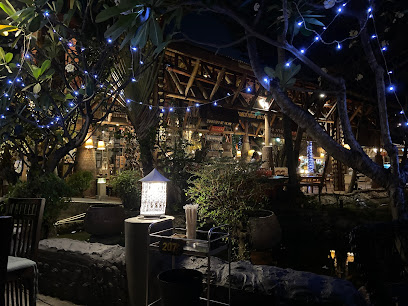
Baan Chidlom Bang Pu
Discover authentic Thai flavors and fresh seafood at Baan Chidlom Bang Pu, where culinary excellence meets breathtaking coastal views.
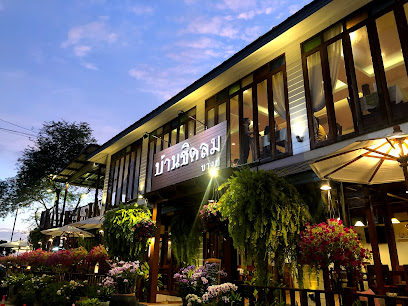
Sala Suk Chai
Discover authentic Thai seafood at Sala Suk Chai in Samut Prakan - where freshness meets flavor in every delicious bite.
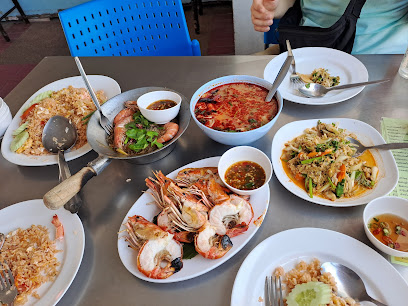
Boonlert Bang Pu Kitchen
Experience authentic Thai flavors at Boonlert Bang Pu Kitchen – where culinary traditions meet modern dining in Samut Prakan.
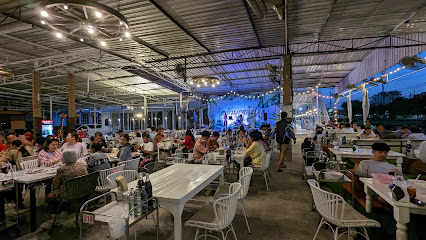
Khorbfa La Tawan
Discover fresh seafood delights at Khorbfa La Tawan in Bang Pu – a true taste of Thailand’s coastal cuisine.
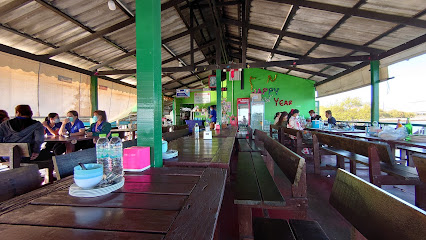
Ruenpetch 2
Experience authentic Thai shabu shabu at Ruenpetch 2 in Samut Prakan – where tradition meets flavor in every bite.
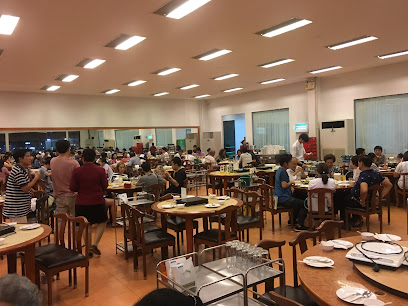
Ban Meysa
Experience the best of Thai seafood at Ban Meysa in Samut Prakan—where freshness meets flavor in every dish.
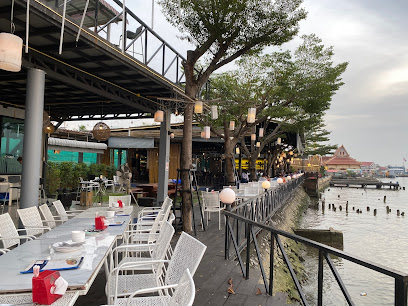
Mae Cuisine
Experience authentic Thai seafood at Mae Cuisine in Samut Prakan - where freshness meets flavor in every bite.
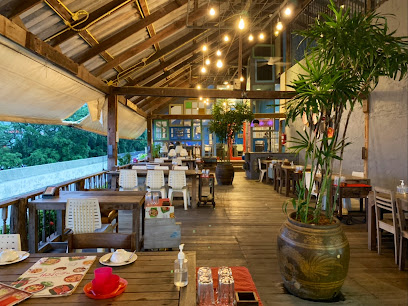
Agalin Garden Room
Experience delightful Asian Fusion dishes surrounded by lush gardens at Agalin Garden Room in Samut Prakan.
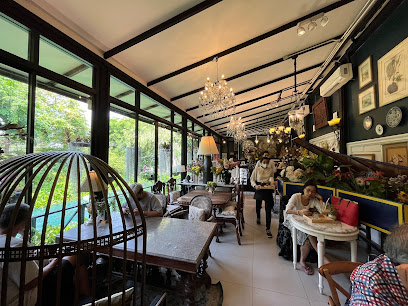
Rossukhon Restaurant
Discover authentic Thai flavors at Rossukhon Restaurant in Samut Prakan, where delicious food meets warm hospitality.
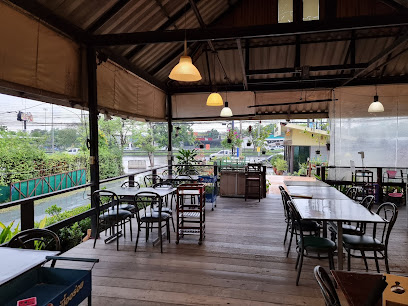
Wangboo Restaurant (Samut Niwet)
Discover authentic Halal cuisine at Wangboo Restaurant in Samut Prakan, where traditional Thai flavors meet warm hospitality.
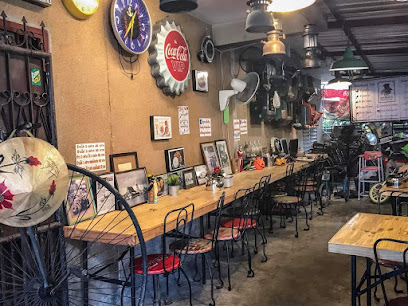
Markets, malls and hidden boutiques
Mega Bangna
Explore Mega Bangna, Bangkok's premier shopping destination featuring a vast selection of stores, dining, and entertainment options for an unforgettable experience.
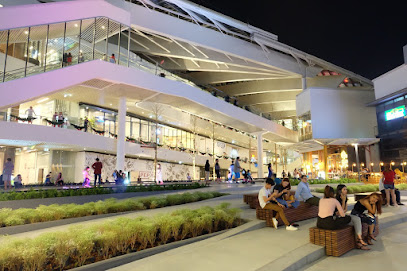
The Platinum Fashion Mall
Explore Bangkok's vibrant shopping scene at The Platinum Fashion Mall, a paradise for fashion lovers with unbeatable deals and unique finds.
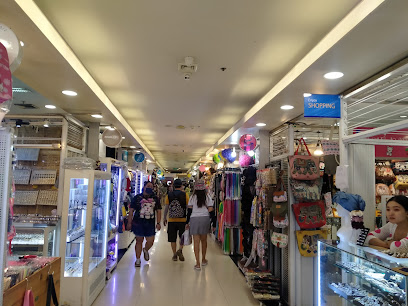
The Ancient City
Discover Thailand's rich heritage at The Ancient City, an outdoor museum showcasing iconic landmarks and cultural treasures in one breathtaking location.
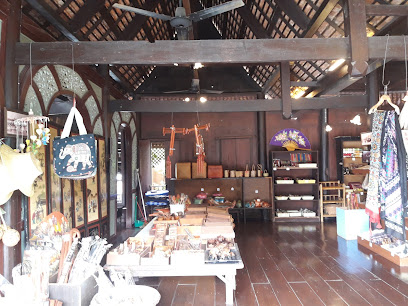
Imperial World Samrong
Discover a shopping paradise at Imperial World Samrong, where retail therapy meets culinary delights and family-friendly fun in Samut Prakan.
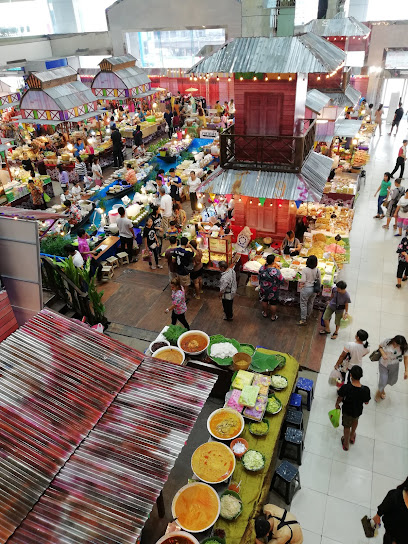
Robinson Lifestyle Samut Prakan
Explore Robinson Lifestyle Samut Prakan, a vibrant shopping mall that offers a unique blend of retail therapy, dining, and family-friendly entertainment in Thailand.

Market Village Suvarnabhumi
Explore the vibrant Market Village Suvarnabhumi for a unique shopping, dining, and entertainment experience in Samut Prakan, Thailand.
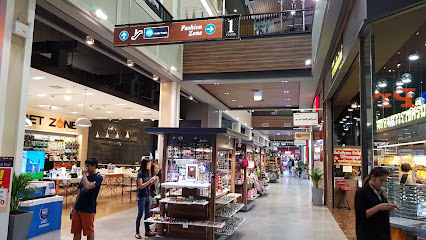
Central Village
Discover Central Village, the ultimate shopping and dining destination near Bangkok, blending luxury brands with local charm in a modern setting.
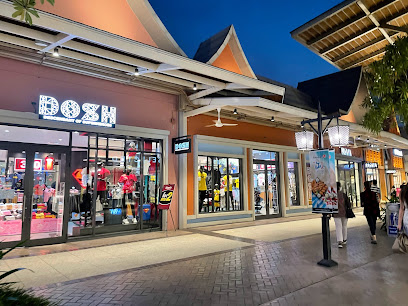
Siam Premium Outlets Bangkok
Discover unbeatable deals and a vibrant shopping experience at Siam Premium Outlets Bangkok, the ultimate retail destination in Thailand.
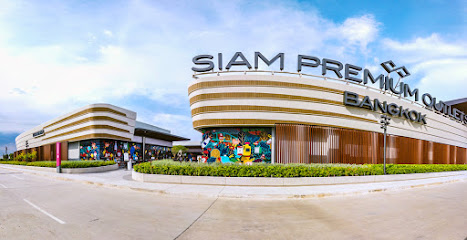
Big C Supercenter Samut Prakan
Experience shopping at Big C Supercenter Samut Prakan, where affordability meets variety in the heart of Thailand.
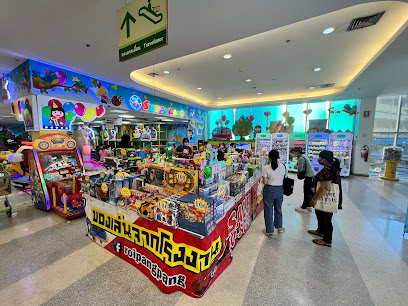
King Power - Suvarnabhumi Airport
Explore a world of duty-free shopping at King Power - Suvarnabhumi Airport, where luxury meets convenience for all travelers.
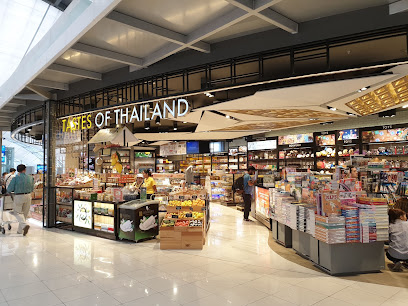
Palladium World
Discover Palladium World, Bangkok's ultimate shopping mall, featuring a wide array of stores, dining options, and entertainment for all ages.
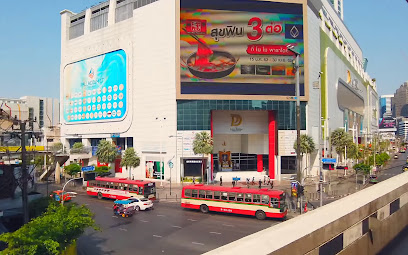
Samut Prakan Market
Experience the vibrant atmosphere of Samut Prakan Market, where authentic Thai flavors and unique crafts await every visitor.
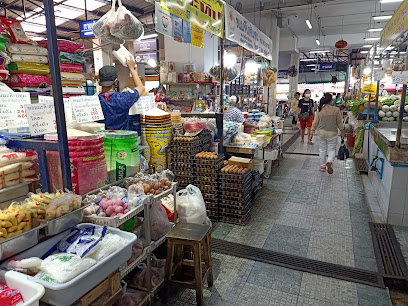
Makro Lotus’s Mall, Samut Prakan
Experience authentic Thai shopping at Makro Lotus’s Mall, a vibrant supermarket and wholesale food store in Samut Prakan, Thailand.
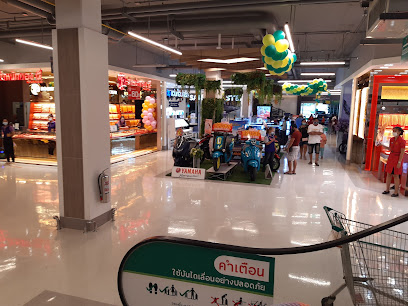
Infinite Mall
Discover the ultimate shopping and entertainment experience at Infinite Mall in Samut Prakan, Thailand, where culture meets modern retail.
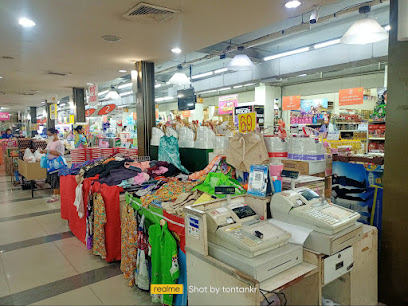
Re coffee to community
Discover the heart of Thai coffee culture at Re Coffee to Community in Samut Prakan, where quality brews meet a vibrant community atmosphere.
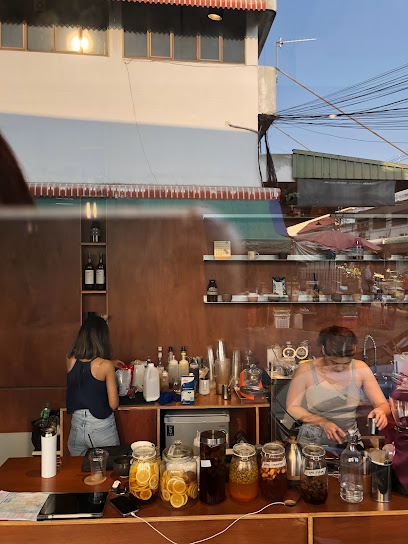
Essential bars & hidden hideouts
Underdog Microbrewery
Discover the unique flavors of craft beer at Underdog Microbrewery, a vibrant destination in Samut Prakan for beer enthusiasts and food lovers alike.
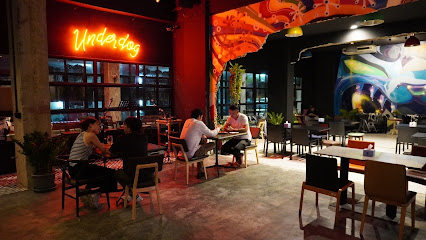
Begin Bar & Bistro
Discover the vibrant atmosphere of Begin Bar & Bistro in Samut Prakan, where delicious cuisine meets innovative cocktails in a lively setting.
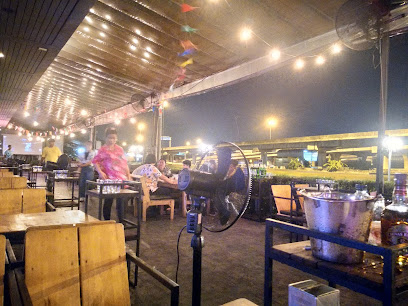
Come Again Cafe & Restaurant
Savor the essence of Thailand at Come Again Cafe & Restaurant, where authentic flavors and warm ambiance await every visitor.
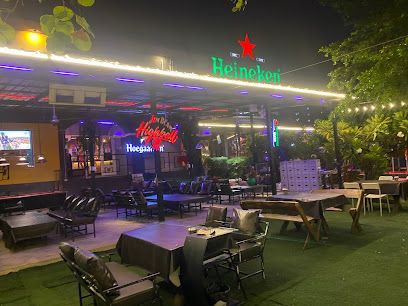
Gasoline Restaurant & Bar
Discover the vibrant flavors and lively atmosphere at Gasoline Restaurant & Bar in Samut Prakan, where culinary adventures await every visitor.
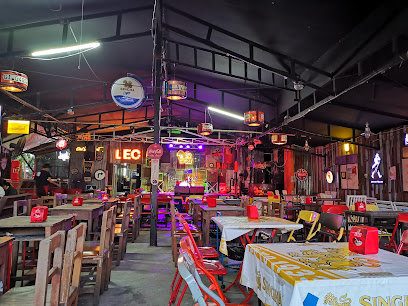
AREA 17
Discover the electrifying atmosphere of AREA 17, a live music bar in Sukhumvit, where unforgettable performances meet vibrant nightlife.
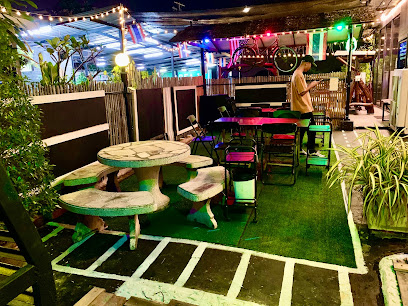
ผักหวานคันทรีผับ
Experience the lively nightlife and authentic Thai culture at ผักหวานคันทรีผับ, a must-visit pub in Samut Prakan for all tourists.
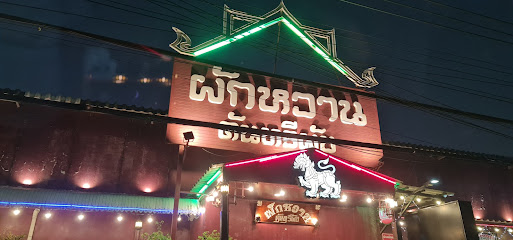
GIVE ME SOME ALE
Discover GIVE ME SOME ALE, a vibrant bar in Pak Nam, Samut Prakan, offering an extensive beer selection and a lively atmosphere perfect for unwinding.
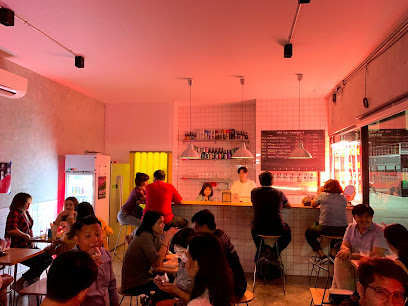
NAB Samut prakan
Experience the lively nightlife at NAB Samut Prakan, where local culture meets vibrant entertainment and a diverse drink selection.
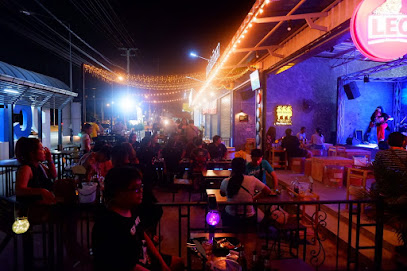
ร้านFin Restaurant
Discover the vibrant nightlife at Fin Restaurant in Samut Prakan, where great drinks and a lively atmosphere await your arrival.
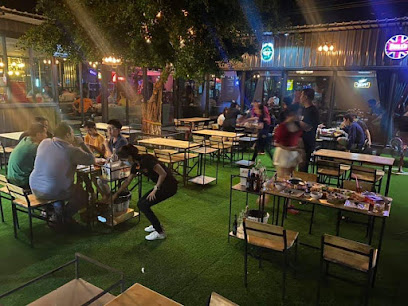
Red whiskey and wine bar เรดบาร์
Discover the best cocktails and gourmet cheese at Red Whiskey and Wine Bar in Pak Nam, where every sip is a celebration.
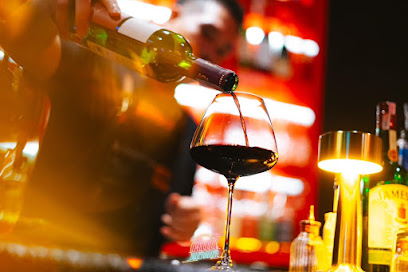
Red Bar Wine&Whiskey
Discover the vibrant nightlife at Red Bar Wine & Whiskey, where exquisite cocktails and fine wines meet a cozy atmosphere in Samut Prakan.
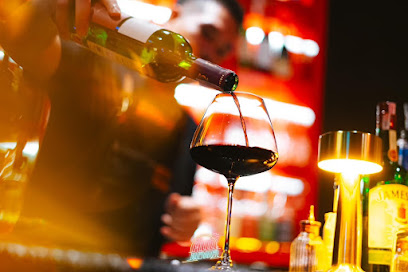
THE RICH EXCLUSIVE CLUB
Discover the vibrant nightlife of Samut Prakan at The Rich Exclusive Club – where lively entertainment meets exquisite cocktails.
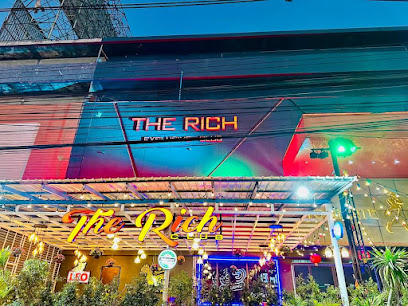
zookzorn.bar
Discover the vibrant nightlife at Zookzorn Bar in Samut Prakan, where a lively atmosphere, fantastic drinks, and local culture await you.
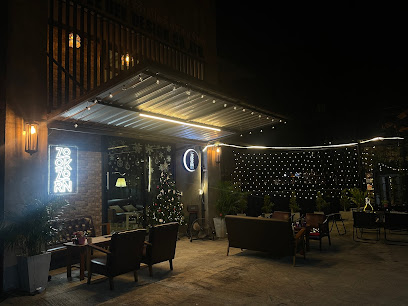
ป.1/2สาขาศรีนครินทร์
Unwind at ป.1/2สาขาศรีนครินทร์, a lively bar in Samut Prakan offering vibrant nightlife, delicious drinks, and a taste of local culture.
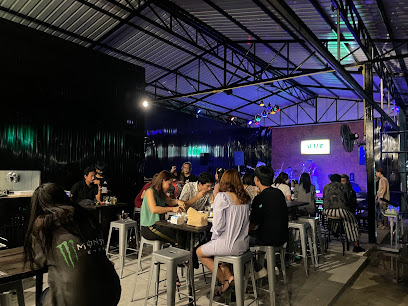
Local Phrases
-
- Helloสวัสดี
[sawasdee] - Goodbyeลาก่อน
[laa kon] - Yesใช่
[chai] - Noไม่
[mai] - Please/You're welcomeโปรด/ไม่เป็นไร
[proht/mai bpen rai] - Thank youขอบคุณ
[khob khun] - Excuse me/Sorryขอโทษ
[khaw toht] - How are you?คุณสบายดีไหม
[khun sabai dee mai] - Fine. And you?สบายดีค่ะ คุณล่ะ
[sabai dee ka khun la] - Do you speak English?คุณพูดภาษาอังกฤษได้ไหม
[khun poot pah saa ang grit dai mai] - I don't understandฉันไม่เข้าใจ
[chan mai khao jai]
- Helloสวัสดี
-
- I'd like to see the menu, pleaseฉันอยากดูเมนู โปรด
[chan yak doo menu proht] - I don't eat meatฉันไม่กินเนื้อ
[chan mai gin neuua] - Cheers!ชนเหยาะ
[chon yao] - I would like to pay, pleaseฉันต้องการจ่ายเงิน โปรด
[chan tong gaan jaai ngern proht]
- I'd like to see the menu, pleaseฉันอยากดูเมนู โปรด
-
- Help!ช่วยด้วย
[chuai duay] - Go away!ไปไกลๆ
[bpai glai glai] - Call the Police!โทรตำรวจ
[toh tamruat] - Call a doctor!โทรหมอ
[toh mor] - I'm lostฉันหลงทาง
[chan long tang] - I'm illฉันไม่สบาย
[chan mai sabai]
- Help!ช่วยด้วย
-
- I'd like to buy...ฉันอยากซื้อ...
[chan yak seuu...] - I'm just lookingฉันกำลังดูอยู่
[chan gam lang doo yuu] - How much is it?ราคาเท่าไร
[raa kha thao rai] - That's too expensiveแพงเกินไป
[paeng geern bpai] - Can you lower the price?ลดราคาได้ไหม
[lot raa kha dai mai]
- I'd like to buy...ฉันอยากซื้อ...
-
- What time is it?ตอนนี้กี่โมง
[dton nee gee mong] - It's one o'clockเวลาหนึ่งโมง
[welaa neung mong] - Half past (10)10 นาทีครึ่ง
[sip naa tee khrung] - Morningเช้า
[chao] - Afternoonบ่าย
[bai] - Eveningเย็น
[yen] - Yesterdayเมื่อวาน
[meua waan] - Todayวันนี้
[wan nee] - Tomorrowพรุ่งนี้
[proong nee] - 1หนึ่ง
[neung] - 2สอง
[song] - 3สาม
[sam] - 4สี่
[see] - 5ห้า
[ha] - 6หก
[hok] - 7เจ็ด
[jet] - 8แปด
[baet] - 9เก้า
[gao] - 10สิบ
[sip]
- What time is it?ตอนนี้กี่โมง
-
- Where's a/the...?...อยู่ที่ไหน
[...yuu tee nai] - What's the address?ที่อยู่อยู่ที่ไหน
[tee yuu yuu tee nai] - Can you show me (on the map)?คุณแสดงให้ฉันดูได้ไหม
[khun sa daeng hai chan doo dai mai] - When's the next (bus)?รถปัจจุบันตรวจหน้าเมื่อไหร่
[rote pat chu ban truat naa meua rai] - A ticket (to ....)ตั๋วถ้ำไป....
[dtua tam pai....]
- Where's a/the...?...อยู่ที่ไหน
History of Samut Prakan
-
Samut Prakan, often referred to as Pak Nam, is a coastal province in central Thailand. It was founded in 1620 during the reign of King Prasat Thong of the Ayutthaya Kingdom. The city was strategically established at the mouth of the Chao Phraya River, serving as a key defensive outpost against potential invasions from the sea.
-
In the late 19th century, King Rama V (King Chulalongkorn) recognized the need for modern defenses to protect the kingdom. He commissioned the construction of Phra Chulachomklao Fortress, completed in 1893. The fortress played a significant role during the Franco-Siamese War of 1893, particularly in the Paknam Incident where it helped defend against French naval forces.
-
Samut Prakan is home to the world's largest crocodile farm, established in 1950 by Utai Youngprapakorn. The farm was originally created to conserve the dwindling population of crocodiles in Thailand and has since become a major tourist attraction, offering visitors both educational and entertaining experiences with these ancient reptiles.
-
In the early 2000s, the Erawan Museum was constructed in Samut Prakan. The museum, known for its giant three-headed elephant sculpture, was initiated by Lek Viriyaphant. It houses a vast collection of Thai cultural artifacts and serves as a symbol of the artistic and spiritual heritage of Thailand.
-
Established in 1937, Bang Pu Recreation Center is a popular seaside destination in Samut Prakan. It was originally developed as a health and wellness retreat for Thai citizens. Known for its scenic views and large population of migratory seagulls, it remains a favored spot for both locals and tourists seeking relaxation and natural beauty.
Samut Prakan Essentials
-
Samut Prakan is located just south of Bangkok and is easily accessible from the Thai capital. The nearest airport is Suvarnabhumi Airport (BKK), which is about a 30-minute drive from Samut Prakan. From the airport, you can take a taxi or use ride-hailing services like Grab. Alternatively, you can take the BTS Skytrain to the Bearing Station and then a taxi or a local bus to reach Samut Prakan.
-
Getting around Samut Prakan can be done via various modes of transportation. Local buses and songthaews (shared pickup trucks) are available and relatively inexpensive. Taxis and motorbike taxis are also widely available. For a more comfortable and quicker option, consider using ride-hailing apps like Grab. The BTS Skytrain extension to Kheha Station makes it convenient to travel between Bangkok and Samut Prakan.
-
The official currency in Thailand is the Thai Baht (THB). Credit cards are accepted in most hotels, restaurants, and larger shops, but it's advisable to carry cash for smaller establishments and local markets. ATMs are widely available, and currency exchange services can be found at banks and exchange kiosks.
-
Samut Prakan is generally safe for tourists, but it's always wise to take standard precautions. Avoid isolated areas at night, and keep an eye on your belongings in crowded places. While crime rates are relatively low, areas around tourist attractions can attract pickpockets. Always use registered taxis or ride-hailing services to avoid scams.
-
In case of an emergency, dial 191 for police, 1669 for medical emergencies, and 199 for fire services. Most hospitals have English-speaking staff. It's advisable to have travel insurance that covers medical emergencies. Pharmacies are readily available for minor health issues, and they often carry over-the-counter medications.
-
Fashion: Do dress modestly, especially when visiting temples and religious sites. Avoid revealing clothing. Religion: Do show respect when visiting temples. Remove your shoes and cover your shoulders and knees. Public Transport: Do be respectful and give up your seat to monks, the elderly, and pregnant women. Don't eat or drink on public transport. Greetings: Do greet people with a 'wai' (a slight bow with hands pressed together). A handshake is less common. Eating & Drinking: Do try local dishes and street food, but ensure your food is cooked thoroughly. Don't refuse food or drink offerings, as it can be considered impolite.
-
To experience Samut Prakan like a local, visit the local markets such as Bang Phli Floating Market for fresh produce and traditional Thai goods. Engage with the locals, who are often friendly and willing to share stories about the area. Don't miss the Ancient City (Muang Boran), a large open-air museum showcasing replicas of Thailand's historical sites. For a unique experience, visit the Erawan Museum, famous for its giant three-headed elephant statue.
Trending Landmark in Samut Prakan
-
The Ancient City
-
The Erawan Museum
-
Sri Nakhon Khuean Khan Park and Botanical Garden
-
Phra Chulachomklao Fort
-
Suk Ta Bridge
-
Samut Prakan Learning Park And Tower
-
Phra Pradaeng City Pillar Shrine
-
Phi Suea Samut Fort Museum
-
ᐅ Sumeru Mountain (102)
-
ᐅ The Stupa of Phra Maha That, Nakhon Si Thammarat (007)
-
Sanphet Prasat Palace. Muangboran - The Ancient City
-
ᐅ The Old Market Town (010)
-
ᐅ The Grand Hall of Wat Maha That, Sukothai (050)
-
Pavilion of the Enlightened
-
Khlong Phi Lok
Nearby Cities to Samut Prakan
-
Things To Do in Bangkok
-
Things To Do in Pattaya
-
Things To Do in Ayutthaya
-
Things To Do in Rayong
-
Things To Do in Hua Hin
-
Things To Do in Kanchanaburi
-
Things To Do in Nakhon Ratchasima
-
Things To Do in Trat
-
Things To Do in Battambang
-
Things To Do in Koh Kong
-
Things To Do in Siem Reap
-
Things To Do in Chumphon
-
Things To Do in Sukhothai
-
Things To Do in Koh Rong
-
Things To Do in Loei








